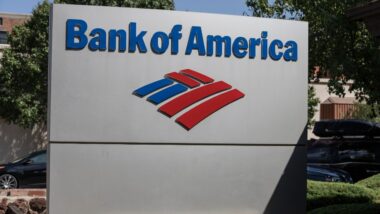Top Class Actions’s website and social media posts use affiliate links. If you make a purchase using such links, we may receive a commission, but it will not result in any additional charges to you. Please review our Affiliate Link Disclosure for more information.
It’s well known that losing a job can be incredibly impactful on all parts of a person’s life, but fewer people are aware of the laws put in place to protect Americans from those impacts. One such law is the Consolidated Omnibus Budget Reconciliation Act, or COBRA. COBRA is an act that offers an extension of the insurance provided by your employer.
Unfortunately, employers sometimes fail to meet COBRA notice requirements, and because of this, some people who have lost their jobs may have paid out-of-pocket for medical expenses which would have been covered under COBRA. To combat this issue, former-employees can file COBRA lawsuits against their former employers to seek compensation for these costs.
What Is COBRA?
COBRA is a federal law that was passed in 1985 to offer protection for workers who lose their health benefits. According to the United States Department of Labor (DOL), these protections are offered to certain workers who have suffered a “qualifying event” such as “voluntary or involuntary job loss, reduction in the hours worked, transition between jobs, death, divorce, and other life events”. Individuals may be required to cover the entire premium of the coverage or up to 102 percent of the cost.
COBRA benefits are available through employers of 20 workers or more. COBRA coverage may not be available in all cases, but COBRA notice requirements ensure health insurers provide notification to workers who may qualify.
What Are COBRA Notice Requirements?
COBRA notice requirements apply to your insurer, your employer, and you. Failure to meet these requirements on the part of your insurer or employer could lead to a fine, while a failure to give notice on your part could lead to a denial of coverage.
First, under COBRA, group health plans must notify employees and their families of their COBRA rights within 90 days of joining the plan.

Finally, you must notify the insurance provider of a qualifying event if that event is a “divorce, legal separation, or a child’s loss of dependent status under the plan”. You must be given at least 60 days to meet your COBRA notice requirements. After the provider has been notified of the qualifying event, they must instruct the plan beneficiary of their rights and options within 14 days.
Bank of America COBRA Lawsuit
On June 6, 2020, Sheila R. filed a COBRA lawsuit against the Bank of America Corporation (BOA). The suit alleges that BOA intentionally split up their COBRA notice into separate, hard to understand pieces in an effort to push employees away from COBRA coverage in order to save the company money. The suit claims this happened despite the fact that BOA had access to the DOL COBRA form which was specifically designed to avoid confusion on the part of recipients.
The plaintiff alleges that she was confused and misled by BOA, and that, as a result, she faced gaps in coverage and unpaid medical bills.
“Rather than including all information required by law in a single notice… Defendant’s COBRA notification process instead offers only part of the legally required information in haphazard and piece-meal fashion,” the suit claims.
Her COBRA lawsuit is Sheila R. v. Bank of America Corporation, Case No. 8:20-cv-01272 in the U.S. District Court of the Middle District of Florida Tampa Division.
If you faced unpaid medical bills or gaps in coverage due to a failure on the part of your insurance provider or employer to meet their COBRA notice requirements, you may be eligible to seek compensation through civil action.
Join a Free COBRA Class Action Lawsuit Investigation
If you received a COBRA notice that did not fully disclose your rights and how to retain your health insurance following separation from your job, or you received no notice at all, you may be qualify to join this COBRA notice class action lawsuit investigation.
This article is not legal advice. It is presented
for informational purposes only.
ATTORNEY ADVERTISING
Top Class Actions is a Proud Member of the American Bar Association
LEGAL INFORMATION IS NOT LEGAL ADVICE
Top Class Actions Legal Statement
©2008 – 2024 Top Class Actions® LLC
Various Trademarks held by their respective owners
This website is not intended for viewing or usage by European Union citizens.
















2 thoughts onCOBRA Notice Requirements Lawsuit Filed Against Bank of America
Add me
Add me